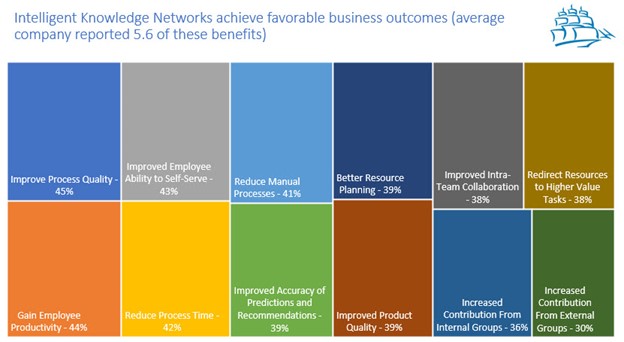
Is an advanced knowledge management system the chicken or the egg for “transformers”?
Here’s a knowledge management “chicken and egg” question: Are organizations that deploy sophisticated knowledge management technology innately imbued with a forward-thinking philosophy about KM? Or does the use of advanced knowledge management systems foster a leadership approach to KM within those organizations?
In other words, which came first – the tendency or the tech?
Among Northern Light SinglePoint users, we typically find a desire to do knowledge management “right” is a major impetus for deploying a market and competitive intelligence research portal; they want to put their full catalog of research assets (both internal and external) to best and broadest use, because they know it will benefit the business decision making process and thereby the enterprise overall. But it’s the combination of organizational attitude and effective use of technology that makes an enterprise what research firm IDC labels a “transformer”.
According to IDC, “transformers” are organizations that “holistically collect and capture information from a large number of sources across the enterprise, use advanced tools and technologies to synthesize and share that knowledge and exhibit a company culture that promotes knowledge sharing… resulting in increases in productivity and better returns on investment.” In short, “transformers” are the most mature, proficient, and sophisticated practitioners of knowledge management, or what IDC calls an “intelligent knowledge network” (IKN).
Northern Light undertook a secondary analysis of IDC’s recent IKN study* (which we co-sponsored), focusing on respondents in high labor cost countries that work in strategic (vs. operational) business functions within their organization – the profile of a typical SinglePoint user or prospect. We noted that enterprises that fall lower on IDC’s IKN “sophistication scale” – IDC labels them “novices”, “explorers”, and “practitioners” – had a range of challenges using knowledge management systems. For example, such organizations self-reported:
- No well-defined process for capturing knowledge;
- Their IKN tool was unable to ingest content and was hard to use;
- They were unable to access silos of information – but at the same time there was too much information to process, yet not enough sources of information (reconcile that!); and
- Valuable industry, product, and business process/operations knowledge was hard to find.
This feedback suggests that an organization has to be culturally and operationally ready to effectively adopt and take full advantage of advanced knowledge management systems; you can’t simply drop the technology into any office and expect it to miraculously produce the same results and business benefits that “transformers” realize.
Those benefits are many and varied. Our sub-set analysis of IDC’s IKN research data revealed the following:

So it seems the answer to our KM-flavored “chicken and egg” question is… yes. “Transformers” make better use of knowledge management technology; and KM systems make “transformers” better companies.
It’s a dynamic quite familiar to Northern Light, because SinglePoint clients overwhelmingly are “transformers” or aspiring “transformers” – they’re the companies we attract, and the winners we help make.
[* IDC multi-client study, “Intelligent Knowledge Networks Survey Analysis”, document number US48814422, December 2021]
